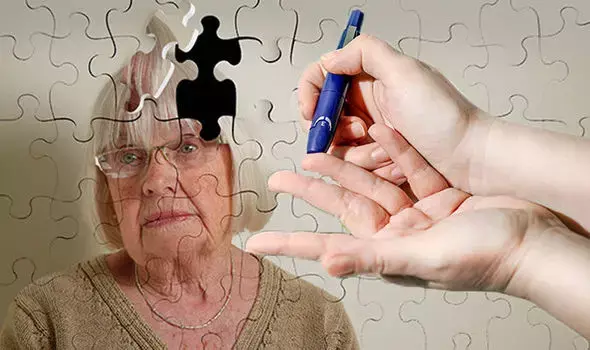- Home
- Medical news & Guidelines
- Anesthesiology
- Cardiology and CTVS
- Critical Care
- Dentistry
- Dermatology
- Diabetes and Endocrinology
- ENT
- Gastroenterology
- Medicine
- Nephrology
- Neurology
- Obstretics-Gynaecology
- Oncology
- Ophthalmology
- Orthopaedics
- Pediatrics-Neonatology
- Psychiatry
- Pulmonology
- Radiology
- Surgery
- Urology
- Laboratory Medicine
- Diet
- Nursing
- Paramedical
- Physiotherapy
- Health news
- Fact Check
- Bone Health Fact Check
- Brain Health Fact Check
- Cancer Related Fact Check
- Child Care Fact Check
- Dental and oral health fact check
- Diabetes and metabolic health fact check
- Diet and Nutrition Fact Check
- Eye and ENT Care Fact Check
- Fitness fact check
- Gut health fact check
- Heart health fact check
- Kidney health fact check
- Medical education fact check
- Men's health fact check
- Respiratory fact check
- Skin and hair care fact check
- Vaccine and Immunization fact check
- Women's health fact check
- AYUSH
- State News
- Andaman and Nicobar Islands
- Andhra Pradesh
- Arunachal Pradesh
- Assam
- Bihar
- Chandigarh
- Chattisgarh
- Dadra and Nagar Haveli
- Daman and Diu
- Delhi
- Goa
- Gujarat
- Haryana
- Himachal Pradesh
- Jammu & Kashmir
- Jharkhand
- Karnataka
- Kerala
- Ladakh
- Lakshadweep
- Madhya Pradesh
- Maharashtra
- Manipur
- Meghalaya
- Mizoram
- Nagaland
- Odisha
- Puducherry
- Punjab
- Rajasthan
- Sikkim
- Tamil Nadu
- Telangana
- Tripura
- Uttar Pradesh
- Uttrakhand
- West Bengal
- Medical Education
- Industry
Rare case of Dural arteriovenous fistula causing reversible cognitive impairment- A report

Dural arteriovenous fistulas are abnormal vascular communications, located within the dural leaflets, formed between meningeal arteries and dural venous sinuses and/or subarachnoid veins. Their clinical presentation depends on location and drainage patterns, and ranges between being an incidental finding with no symptoms to presenting with a fatal haemorrhage.
A recent report published in Practical Neurology highlights authors a rare case of an 82-year-old woman who presented to the emergency department of a district general hospital following a fall. A CT scan of head and CT cerebral angiogram (as part of our hyperacute stroke pathway) showed right basal ganglia hypoattenuation and a 1.7 cm vein of Galen aneurysmal dilatation, suggesting venous congestion. Her further history included 5 months of declining cognition, speech and mobility. She had previously been fully independent with activities of daily living, but had gradually deteriorated, especially over the weeks before admission with increased frequency of falls. The imaging findings also suggested a previous cerebral vein thrombosis with partial recanalisation. She was therefore started on warfarin to minimise the risk of infarct extension.
She came back again 2 months later with worsening confusion and a severe decline in mobility, and had become completely dependent on her family for support and required a Zimmer frame to walk. She was distractible and perseverating, with impaired short-term and semantic memory.
MR scan of brain and MR cerebral venogram showed high signal in the basal ganglia and thalami, with enlargement of the vein of Galen and proximal straight sinus. Her impairments and investigation, following discussion with diagnostic and interventional neuroradiology, suggested a dural arteriovenous fistula. Digital subtraction angiography identified a central tentorial dural arteriovenous fistula with associated aneurysmal dilatation of the vein of Galen.
She underwent successful embolisation of the fistula within a month of her more rapid deterioration.
The authors suggest that this patient’s presumed course of events was venous thrombosis causing a dural arteriovenous fistula to develop, with subsequent thalamic oedema. The mechanism by which fistulae caused dementia could be due to the two proposed mechanisms: cortical and thalamic dementia. Cortical dementia probably results from obstruction of venous drainage or venous hypertension, while thalamic dementia probably results from defective venous drainage, leading to venous congestion and thalamic ischaemia. Vein of Galen occlusion is the most frequent cause, followed by basal and cerebral veins reflux. “This patient’s dementia was probably caused mainly by a thalamic process. The role of the thalamus in cognition is still poorly understood although it probably transmits sensory information to the cortex and plays a role in visuospatial perception.”, they said.
Endovascular treatment (embolisation) is the most common treatment for dural arteriovenous fistula, and achieves complete occlusion of the fistula in 80%–100%. However, symptom improvement is not guaranteed, in part due to irreversible cerebral injury. Although bilateral thalamic oedema arising from a dural arteriovenous fistula is rare, this case emphasises the importance for clinicians to consider the diagnosis in someone with a rapidly progressive cognitive decline. Initial imaging may be normal but early dedicated vessel imaging may identify a potentially treatable dural arteriovenous fistula before there is irreversible cerebral injury.
Reference:
Anna Alexandratou, Yee Ma, Deborah Ramse, Naga Kandasamy, Christos M Tolias, Naveen Gadapa, Sandeep Ankolekar Practical neurology http://dx.doi.org/10.1136/pn-2021-003332
MBBS, DrNB Neurosurgery
Krishna Shah, MBBS, DrNB Neurosurgery. She did her MBBS from GMC, Jamnagar, and there after did direct 6 Year DrNB Neurosurgery from Sir Ganga Ram Hospital, Delhi. Her interests lie in Brain and Spine surgery, Neurological disorders, minimally invasive surgeries, Endoscopic brain and spine procedures, as well as research.
Dr Kamal Kant Kohli-MBBS, DTCD- a chest specialist with more than 30 years of practice and a flair for writing clinical articles, Dr Kamal Kant Kohli joined Medical Dialogues as a Chief Editor of Medical News. Besides writing articles, as an editor, he proofreads and verifies all the medical content published on Medical Dialogues including those coming from journals, studies,medical conferences,guidelines etc. Email: drkohli@medicaldialogues.in. Contact no. 011-43720751


